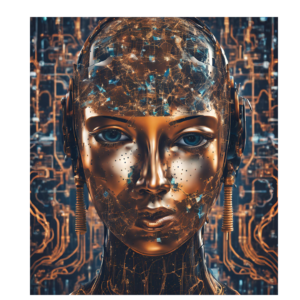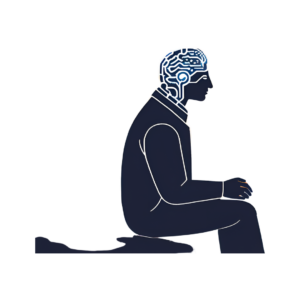www.astrealegal.com
The challenges in regulating Artificial Intelligence
While existing laws like the Information Technology (IT) Act, 2000, and the Consumer Protection Act, 2019, offer some guidance, they do not adequately address complex AI-related issues such as algorithmic liability and ethical governance. For example, determining accountability when AI causes harm, like accidents with autonomous vehicles or errors in AI-driven healthcare, remains unresolved. This lack of clear frameworks creates legal ambiguity and makes assigning responsibility difficult.
Data privacy is another critical concern. AI systems rely on large datasets, often containing sensitive personal information. India lacks robust data protection laws comparable to the GDPR. The pending Digital Personal Data Protection Bill highlights the urgent need for legal safeguards to prevent unauthorized data usage and mitigate risks associated with AI-driven surveillance, such as facial recognition systems used in public spaces.
Bias and discrimination in AI algorithms also pose a significant challenge. These systems often reflect societal biases, leading to unfair outcomes in areas like hiring, lending, and law enforcement. Without specific anti-bias regulations, ensuring fairness in AI decision-making is challenging.
Cybersecurity Challenges and AI:
* Increasing sophistication in cyber threats driven by AI necessitates AI-based defenses.
* AI applications can aid in identifying vulnerabilities, automating patch management, and anomaly detection in network traffic.
AI and Cyber Warfare:
* AI can be used for both beneficial and destructive purposes, including cyber-attacks.
* The emergence of adversarial AI, where attackers use AI to manipulate defensive AI systems, is a concern.
Ethics and AI:
* Addressing systemic biases in AI algorithms and ensuring accountability in decision-making are crucial.
* Developing frameworks for anonymizing data and preventing misuse of personal information is essential.
Weaponization and Safety:
* Potential risks of AI-powered autonomous weapons necessitate regulatory oversight.
* Recommendations for setting global standards for AI safety and trust are needed.
* Challenges in combating misinformation, cybercrimes, and maintaining data privacy on social media platforms must be addressed.
* Developing AI algorithms to detect fake news, monitor national security threats, and analyze social behaviour can be beneficial.
Autonomous Systems and AI in Safety-Critical Areas
Motor Vehicles Act, 1988:
Covers autonomous vehicles, but lacks specific provisions. Liability in case of accidents involving AI-driven vehicles may rely on tort law or strict liability principles.
Aviation Laws:
Regulations under the Directorate General of Civil Aviation (DGCA) for drones extend to AI- enabled unmanned aerial vehicles.
Judgements passed:
Patentability of AI-Related Inventions: Ferid Allani v. Union of India
Court: Delhi High Court Year: 2019
Background: The petitioner sought patent protection for a computer-implemented invention that utilized algorithms, falling under the scope of AI. The Indian Patent Office initially rejected the application, citing Section 3(k) of the Patents Act, 1970, which excludes algorithms from patentability.
Judgment: The Delhi High Court emphasized the importance of assessing the technical effect or technical contribution of such inventions. The court ruled that mere exclusion under Section 3(k) should not prevent patentability if the invention demonstrates a technical advancement.
Impact: This judgment marked a turning point in evaluating AI-based patents, ensuring alignment with international best practices and encouraging innovation in AI technologies.
Judicial Use of AI: In Re Delhi High Court’s Use of ChatGPT
Court: Delhi High Court Year: 2023
Context: During a hearing, the court utilized ChatGPT to seek clarity on legal principles. Judgment and Observations: The court clarified that while AI tools can assist in legal research, they must be treated as supplementary aids. Judicial decisions should rely on established legal principles and human reasoning. The court warned against over-reliance on AI due to potential biases and inaccuracies.
Significance: The case underlines the cautious integration of AI in the judicial process, ensuring that human oversight remains paramount.
Right to Privacy and AI-Driven Surveillance: Justice K.S. Puttaswamy v. Union of
India
Court: Supreme Court of India Year: 2017
Relevance to AI: While the judgment primarily dealt with the Aadhaar system, it established privacy as a fundamental right under Article 21 of the Constitution. This precedent directly impacts AI-driven surveillance systems, requiring them to adhere to principles of necessity, proportionality, and transparency.
Implications: Future cases involving AI-based facial recognition, biometric data processing, or algorithmic profiling will draw upon this judgment to balance innovation with privacy safeguards.
Liability in AI-Driven Accidents: Anticipatory Jurisprudence
Current Status: Indian courts are yet to address specific cases of AI-driven liability, such as accidents caused by autonomous vehicles.
Legal Principles Likely to Apply:
o Strict Liability: Courts may hold manufacturers or operators strictly liable for harm
caused by autonomous systems.
o Negligence: Issues of foreseeability, design flaws, or inadequate safeguards could
form the basis of negligence claims.
AI and Data Protection: Challenges In the Absence of Comprehensive Laws
Case Example: While no AI-specific rulings exist, cases like Anvar P.V. v. P.K. Basheer (2014) have addressed the admissibility of electronic evidence. Courts have emphasized authenticity, which is pertinent in AI-generated evidence.
Potential for Future Cases: AI’s role in generating or manipulating data could lead to disputes over authenticity and chain of custody, drawing upon principles established in earlier judgments.
Trademark and AI-Generated Content: No Specific Rulings Yet
Anticipated Issues: Disputes over AI-generated trademarks or works of authorship may arise, requiring courts to determine authorship rights and ownership of AI outputs under the
Copyright Act, 1957, and the Trade Marks Act, 1999. Anticipated Challenges and Judicial Directions
- Bias in AI Algorithms:
Indian courts may have to adjudicate on discrimination claims arising from biased algorithms,particularly in recruitment, credit scoring, or law enforcement.
- Ethics in AI Deployment:
Ethical concerns related to AI in autonomous weapons or healthcare could invite judicial scrutiny. Courts may apply international norms and guidelines while interpreting domestic laws.
- AI and Consumer Protection:
With AI increasingly being used in consumer products, liability for defects or misinformation may see adjudication under the Consumer Protection Act, 2019.
- Global Trends and Indian Adaptation:
Judgments in the European Union (e.g., Schrems II) and the United States on AIs role in privacy and competition could influence Indian jurisprudence as courts adapt foreign precedents to domestic contexts.
Additionally, India’s intellectual property (IP) laws are not equipped to handle AI-related issues. Questions around ownership of AI-generated content and patentability of AI-driven innovations highlight the need for IP framework reforms.
Ethical considerations in AI deployment, particularly in sensitive sectors like law enforcement and healthcare, are also pressing. The lack of detailed ethical guidelines leaves room for misuse, including unwarranted surveillance and profiling. The economic impact of AI-driven automation, threatening job security across various sectors, also needs to be addressed.
From a governance perspective, fragmented oversight and limited AI expertise among policymakers and the judiciary hinder effective AI regulation. Existing initiatives lack enforceable legal backing. Cybersecurity risks, including adversarial AI and AI-driven cyberattacks, are not adequately addressed under the IT Act, 2000.
Finally, global regulatory disparities present challenges for India’s AI ecosystem. India must harmonize its AI policies with international standards to facilitate collaboration and ensure compliance with global norms.
Website: www.astrealegal.com
Email: contact@astrealegal.com Contact: +91 9822720483,
Disclaimer – This publication is provided for general information and does not constitute any legal opinion.This publication is protected by copyright. © 2024 Astrea Legal Associates LLP.






